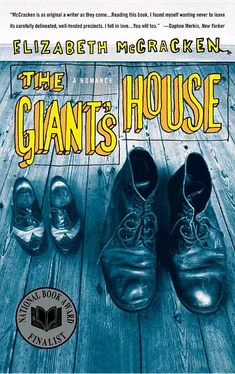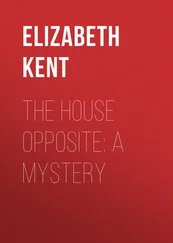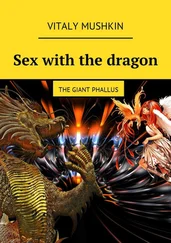She stood up and visored her eyes with her hand. “Pretty town, that’s for sure. Maybe I’ll see you later. Remember Jesus loves you.” She made it sound like a threat. And then she started down the street without another word.
I wanted to chase her, to say something, to push her over. But I sat on my bench instead. The polka-dot dress, the ludicrous red patent-leather belt that made her look like — well, she looked like a doll I’d owned as a girl: a blond pretty girl on top, and when you turned her over and flipped her full skirt inside out, another doll, her twin, except dark, beneath her. I felt like that upside-down girl, blood cupped in the bottom of my skull, in the dark, no hope for daylight as long as Patty Flood went shining down the main street of Brewsterville. Nobody could see me.
But in that dark I had myself. My old reliable, unlovable self — despite Patty’s reminder of Jesus’s personal affection for me, I suspected even He favored sunnier dispositions than mine. Jesus might respect me, Jesus might think I was a stand-up gal and value me as a friend, but He surely did not love me. Well, who needed Him.
Isn’t it funny how the faithful only reaffirm our faithlessness in everything except ourselves?
You were never smart , I thought at Patty Flood, and then I went back inside the library.
Patty Flood was at the cottage when I showed up that afternoon. James was painting at his easel, and she was painting her toenails. She balanced her heel on the edge of my chair and dabbed at her big toe with the tiny red brush. James held his own brush still a second, fascinated.
“I’ve never seen this before,” he said.
Patty leaned as close to her foot as she could and blew at the polish. “It’s easy, once you get the hang of it,” she said, as if James were watching her debone a fish or tap-dance or turn water into wine. She extended her leg to admire her work. “Not bad,” she said to her foot, and then, to me, “Today was a busy day. We had, what, five visitors?”
“Six,” said James.
“Six!” said Patty Flood. “Somebody brought taffy. Want a piece?”
“No thank you.”
Patty reached over to a box on a high table and grabbed a wax-paper bow tie. “It’s good. You sure?”
“Quite sure,” I said. “Your husband’s at the beach again?”
“Nah. He drove up to Plymouth to see that rock.”
“That rock?” I said.
“Yeah. But the guy at the hotel. He said it wasn’t any big deal, just a rock with a date carved into it. I mean, rocks . Out west, we have plenty of those.” She sighed. “That’s one thing we aren’t short on.”
“When are you going back?” I asked.
“Tomorrow,” she said mournfully. “I’ll miss this place. I’ll miss this one.” She pointed at James. He looked embarrassed. “Won’t you miss me, Jimmy?”
“Yes.”
She smirked at him, then slapped at his knee. “Sometimes I forget you’re a teenage boy, and then you act like one. All mumbly.” She looked at her watch. “Well. Don should be getting back. We’re going out to some restaurant tonight, some sea captain’s house. I need to get going.” She blew at her toes again, then tested the polish with her finger. “Close enough.” She slipped her foot into her shoe and stood up, gathered her things, walked to James in his chair. Even sitting down he was taller than she was. “Let’s see whether you’ve captured me,” she said. But the canvas wasn’t her, just a study of her empty shoe careless on the ground. “Not bad. Well,” she said to him. “This was the nicest vacation I’ve had in a long time. Will you write back if I write first?”
“Yes,” he said. He didn’t look at her, and I realized, astounded, that he was going to miss her, that he didn’t want her to go.
“Good-bye,” she said, and then quick she leaned in and kissed him on the cheek. She walked as fast to the door as she could without running, and turned. “Well,” she said, and her eyes were damp. “Better go hear about that stupid rock. See you.” And then she was out the door.
“There goes Patty,” I said.
“Oh, she was okay,” he said, though I’d said nothing aloud to the contrary. “She’s had a hard life. I can forgive a lot of”—he waved his hand—“personality problems if someone’s had a hard life. She was a good talker. I get tired of the same questions all day. How are you, how tall are you, how much do you weigh? That kind of company just wears me out. Nice to have someone new around who lasts for a while.”
But even Patty Flood had lasted for only two weeks.
“Start the record player, will you?” James asked. I flipped the switch and set the bulky tone arm to the edge of the record that was already there. I hadn’t looked at the label. The record popped, and then some fiddles whined. It wasn’t the teenagers’ music — not Stella music, as I thought of it. I pointed at the record player. “What is this?”
“Molly O’Day,” James said. “And the Cumberland Mountain Folks.”
“Jesus music.”
“Music about Jesus,” he said. “Yes. Patty Flood — she gave it to me.”
James put down his brush and turned to Molly O’Day’s voice, singing now about God gathering His jewels. She meant dead people. He stared at the record player as if it were evidence of God, Molly O’Day a visitation from a particular, southern rank of angels.
“I like it,” I said. I was trying to be generous.
“Yeah,” said James. “Patty wants me to get religion, I guess. She wants me to get a lot of religion. Molly O’Day makes it sound like a good idea.”
“Really?” I said. The music made me feel uncomfortable and accused, the way Patty had. If feeling stupid was being faithful, maybe I was on my way.
He laughed. “Don’t worry. I’m not convinced yet.”
“I met Patty downtown today. She told me my problem was I thought too much and it made me miserable. She promised me if I accepted Jesus, I’d be dumb and happy in no time.”
“Don’t do it,” said James. “But she’s right.”
“She is?”
“Sure. You’d have to be a moron to think this wasn’t a sad old world.”
“Sad old world? You’re starting to sound like one of these singers.”
“Yeah. Well, why not. I don’t listen to the radio anymore. This is my new favorite music, gospel. She gave me some Bill Monroe, too. The radio, it’s all … Dean Martin or Kay Starr or Elvis Presley, you know?”
“No,” I said. “What?”
“They’re all singing about love ,” said James. He picked up a brush and started stirring it madly in a glass of water. “I mean, either they’re over it, or they’re starting it, or they’re just talking about having a good time — and it’s just this. It’s this: I don’t want to hear music about things I can’t have anymore. I hate to even be reminded.”
Molly O’Day’s heart was breaking, too; you could hear it in her voice.
“You can have it,” I said quietly.
“Please, Peggy,” he said. He kept his voice careful, rational. “I understand my life.”
“I’m not sure you do,” I said.
“I understand some things.” He started capping his tubes of paint.
I walked to the record player. “This music doesn’t bother you?”
“This?” he said. “This is something I can have, if I want. That’s the whole point of it. If I just welcome Jesus into my heart … This music?” He closed his eyes and moved his hand as if he wanted to catch one of the fiddle licks. “It doesn’t remind me of anyone.”
“No,” I said.
“It reminds me of everyone . Right now, I miss every person I ever knew.” He opened his eyes again. “That’s okay. That much I can bear. It’s just when you get down to particulars.” He hit his chest with his fist, a brush sticking up from between his fingers like a cigarette. “That’s when.”
Читать дальше












